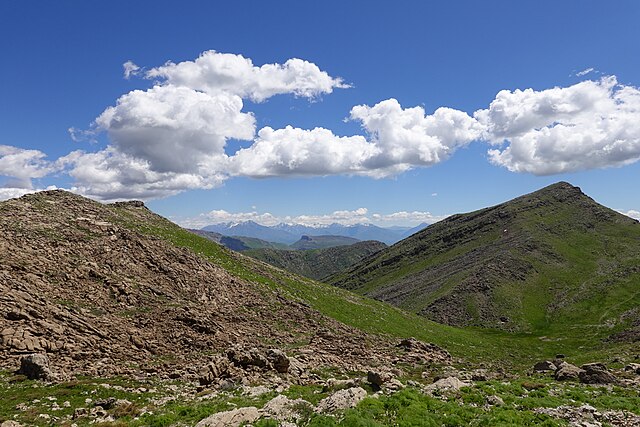Links to Kurdish websites
When researching Kurdish topics on the Internet, you will come across countless websites. To make your research easier, we have put together a selection of sites that we find interesting and useful.

News & Press
The English-language Rojava Information Center provides journalists, researchers and the general public with accurate, accessible and transparent information from northeast Syria.
A Syrian news agency focused on covering events in Syria, particularly in northeastern Syria and Kurdish areas. It provides updates on developments through a team of correspondents and editors, producing visual and written reports for all Syrians.
A news agency based in Hesekê, Rojava, Kurdistan, that began publishing in the summer of 2012. ANHA provides news in multiple languages, including Kurdish, English, Russian, Spanish, Arabic, and Turkish.
A broadcast and digital news network based in the Kurdistan Region of Iraq, publishing in English, Kurdish, Arabic, and Turkish.
A Kurdish news agency that reports on Kurdish issues and offers news in eight languages: Kurdish, Turkish, Spanish, German, English, Arabic, Russian, and Persian.
A Kurdish news agency based in Beyoğlu, known for its pro-Kurdish stance. It publishes news in Kurdish, Turkish, and English. The agency has faced challenges, with many of its reporters and editors being detained and imprisoned.
Features a 30-year collection of valuable visual documents reflecting the culture and history of the Kurdish people. This extensive archive includes daily life, politics, history, music, and art, now available on digital media.
Institutes & Think Tanks
Works to advance awareness of the Kurdish people and their aspirations across the region in which they live. The KPI is based in Washington.
An independent organization providing expert opinions and debates focusing on the issue of Kurdistan and Kurdish people.
Washington Kurdish Institute (WKI)
A non-profit in Washington, D.C. that raises awareness of Kurdish issues, protects rights in Kurdistan, and supports civil society. WKI conducts research, publishes reports, organizes events, and provides educational resources, serving as a key voice for the Kurdish community worldwide.
Promotes cultural and social development for the Kurdish community in Belgium and the Kurdish homeland, while also providing objective information to support democratic progress for Kurds.
Founded in 1983, is an independent, secular organization that unites Kurdish intellectuals and Western experts. It aims to preserve Kurdish culture, support immigrant integration, and raise awareness of Kurdish issues.
Kurdish organizations and associations
KURD-AKAD – Network of Kurdish Academics
The network of Kurdish academics unites people of Kurdish origin who have a university degree in any field.
Representation of the Peoples’ Equality and Democracy Party (DEM) in Europe, based in Brussels.
The representation office aims to protect the interests of all people living in the self-government and their diaspora. At the same time, the representation is the central point of contact for the autonomous region. Based in Brussels.
Civaka Azad – Kurdish Center for Public Relations
Press and public relations work, as well as a point of contact for interested journalists, researchers, activists or political actors. Based in Berlin, Germany.
Cenî – Kurdish Women’s Office for Peace
Founded in May 1999 by Kurdish and Turkish women living in Europe with the aim of strengthening international solidarity among women for peace processes in Turkey and Kurdistan, in the Middle East and worldwide. Based in Berlin.
Kurdistan Human Rights Network
The site monitors human rights violations in Rojhilat/Iran. Based in Paris.
Kurdish Red Crescent (Heyva Sor A Kurd)
An independent non-profit established in 2012 to provide health services to those affected by conflict in northeastern Syria. Based in Qamishli, advocates for human rights and gender equality while collaborating with international organizations.
Heyva Sor A Kurdistanê
Offers humanitarian assistance across the Middle East, particularly in Kurdistan. They support war victims, alleviate poverty, and respond to natural disasters, focusing on vulnerable groups such as children, orphans, families, the sick, and the elderly.
